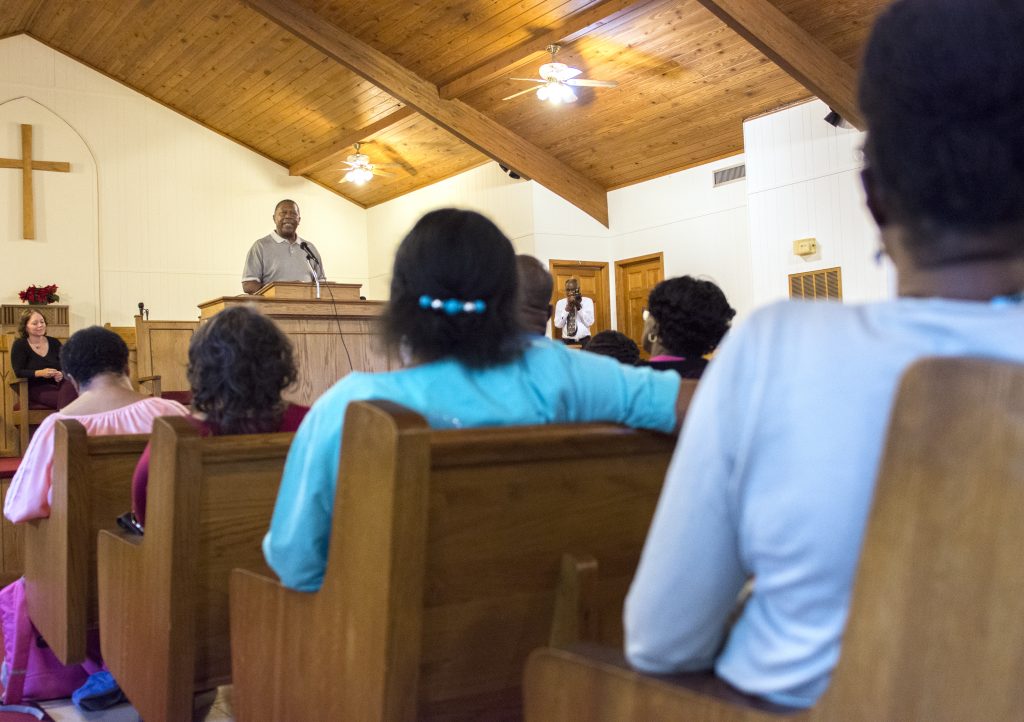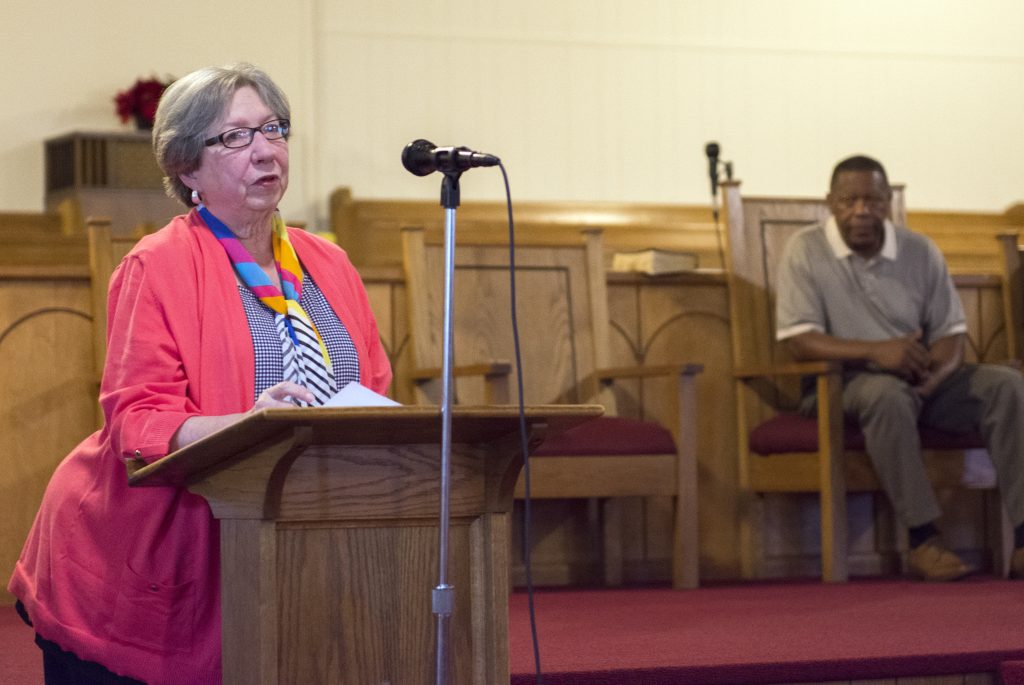Efforts to memorialize the 1935 killing of Elwood Higginbottom, the seventh and last person known to be lynched in Lafayette County, continued on Tuesday night.
A few dozen people lined the pews in the Tallahatchie Oxford Missionary Baptist Association church building for a public meeting hosted by the Lynching Memorialization in Lafayette County group.
April Grayson, director of community building with the William Winter Institute, led the discussion and provided background on the lynching.

Alonzo Hilliard speaks during the Lafayette County lynching memorialization meeting. Photo by Christian Johnson
A white mob lynched 28-year-old Higginbottom on September 17, 1935 — kidnapping him from the Lafayette County jail before taking him to the “Three Way” at the intersection of North Lamar Boulevard and Molly Barr Road, where he was murdered.
Higginbottom had been serving time for shooting a neighboring farmer, Glen Roberts, in self-defense, three days prior.
“He stood up for his family, and that caused him to be lynched,” said Alonzo Hilliard, a member of one of the communication sub-committees emphasized at the meeting.
Higginbottom’s eldest and only remaining child, E.W., was only four years old when his father was killed. Higginbottom’s murder received renewed national attention because of the work of Northwestern University law student Kyleen Burke and the William Winter Institute for Racial Reconciliation.
The lynching was once again brought to national attention earlier this year when Ole Miss assistant professor of journalism Vanessa Gregory wrote an in-depth piece on the tragedy and the family’s struggles for The New York Times.
The Winter Institute and Burke’s work brought the Higginbottom family back to Oxford — from which it fled after the murder of its patriarch — and brought healing and reconciliation to his descendants.
In September 2017, the group took Higginbottom’s son and other family members on a tour around Oxford and Lafayette County to show them the areas believed to be associated with his life, arrest and lynching, including the cemetery where he is believed to be buried in an unmarked grave.
Grayson recalled E.W. Higginbottom saying, “I never thought I’d see this day come. I can’t believe I’m back here, but I’ve met nothing but good people all day long.”
At a later meeting, the group decided to contact the Equal Justice Initiative in Montgomery, Alabama. Its initial contact with the EJI evolved into a year-long partnership that culminated in the group naming the Oxford-Lafayette area a priority community, paying for a memorialization plaque and sponsoring a high school essay contest that will award five local students with $1,000 scholarships.
The plaque dedicated to Higginbottom will be unveiled on Oct. 27, at the three-way stop where he was killed. The community-wide event will be the first of seven markers to commemorate lynchings in Lafayette County.
The six other victims — Harris Tunstal, William McGregory, Will Jackson, William Steen, William Chandler and Lawson Patton — were all lynched before Higginbottom. A research subcommittee has been formed — and will continue to accept members going forward — to investigate these and Higginbottom’s lynchings.

The William Winter Institute for Racial Reconciliation holds the first Lafayette County lynching memorialization meeting. Photo by Christian Johnson
Jeff Jackson, a professor of sociology and anthropology, will aid the research subcommittee. Any interested university students are encouraged to join, and there will be classes on campus concerning the ongoing research surrounding Higginbottom and other victims, Jackson said.
Not talking openly about the past leads to forgetting it, which is why members of campus are interested in getting involved, according to Jackson.
Hilliard stressed not the intellectual or societal weight of remembering the lynchings but the importance of helping a single family heal.
“What we are trying to do here is to help this family and memorialize Mr. Higginbottom in a way that this family can be proud of what happened to their father, in the way that it did. He died for them,” Hilliard said.
Hilliard said the community hasn’t owned up to what happened to Higginbottom and that the unveiling in October will, “show the rest of the nation that Oxford is doing something about racial reconciliation.”
The meeting concluded with a prayer about unity, love and knowledge by Lee Robinson, moderator of the Tallahatchie Oxford Missionary Baptist Association.






